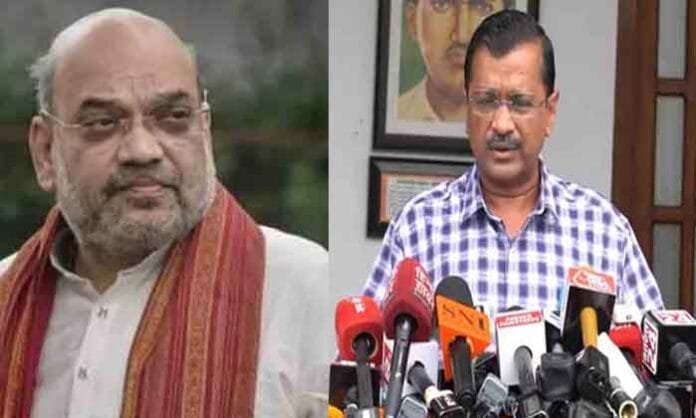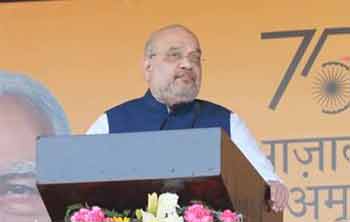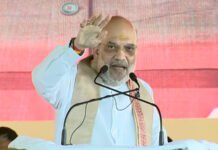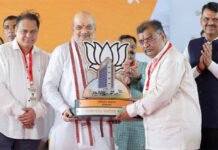Arvind Kejriwal, the National Convenor of the Aam Aadmi Party (AAP) and Delhi’s Chief Minister, met the Election Commission to address concerns over alleged irregularities in voter lists. Following the meeting, Kejriwal made scathing accusations against the Bharatiya Janata Party (BJP), alleging deliberate manipulation of voter rolls targeting marginalized communities.
Kejriwal Presents Evidence of Voter Manipulation
Arvind Kejriwal revealed that AAP had submitted a detailed dossier spanning 3,000 pages to the Election Commission. This evidence reportedly exposes how BJP is orchestrating systematic removal of legitimate voters from Delhi’s electoral rolls. Kejriwal emphasized that the affected voters predominantly belong to disadvantaged groups, including poor, Dalit, and slum-dwelling communities as well as individuals from eastern India.
He stated, “We are grateful that the Election Commission granted us a hearing on short notice. We showcased how BJP is conspiring to disenfranchise valid voters. This is not just an electoral issue but a violation of fundamental rights.”
Impact of Voter Deletion on Citizens’ Rights
Kejriwal underlined the broader implications of voter disenfranchisement. He asserted that removing a citizen’s name from the voter list is equivalent to denying their citizenship. According to him, the right to vote is more than a democratic privilege—it is a recognition of an individual’s identity and rights in the nation.
He further explained, “When a valid voter’s name is removed, you are effectively stripping them of their right to live in this country. They lose access to numerous benefits that are linked to their voter ID, including essential government services.”
Allegations of BJP’s Secretive Actions in Voter Rolls
Kejriwal specifically pointed to several instances where BJP allegedly submitted secret lists of voters to the Election Commission for deletion. These lists include alarming figures from constituencies across Delhi:
- Shahdara: BJP reportedly submitted a list of 11,080 voters for removal.
- Janakpuri: Applications for deleting 4,074 voters were made.
- Tughlakabad: A list targeting 2,435 voters was forwarded.
Kejriwal criticized the lack of transparency in these actions, asserting that the process was carried out clandestinely to avoid public scrutiny.
Political Ramifications of Voter Deletion
The alleged removal of voters raises concerns about the fairness of the democratic process in Delhi. Kejriwal claimed that this targeted disenfranchisement disproportionately affects groups that traditionally support AAP. The manipulation of voter rolls could tilt the balance in favor of BJP in upcoming elections.
Kejriwal declared, “This is not just an attack on AAP but an attack on democracy itself. Every citizen has the right to participate in elections, and this conspiracy seeks to deny them that fundamental right.”
Election Commission’s Role in Ensuring Fairness
While Kejriwal expressed gratitude to the Election Commission for entertaining AAP’s complaint, he also urged the commission to take swift and decisive action. The Aam Aadmi Party demanded:
- Immediate Investigation: A thorough inquiry into the allegations of voter roll manipulation.
- Restoration of Names: Prompt reinstatement of legitimate voters whose names have been unfairly deleted.
- Transparency in Processes: Ensuring that all political parties are informed of any changes to the voter lists.
Kejriwal emphasized, “The Election Commission must act as a neutral arbiter. It cannot allow any political party to undermine the sanctity of elections.”
Public Outcry and Media Reactions
The accusations made by Kejriwal have sparked widespread debate in political and media circles. Civil society organizations have also raised concerns over the implications of voter disenfranchisement on marginalized communities. Several political analysts view this as a crucial test for the Election Commission’s credibility and independence.
The issue has also resonated deeply with Delhi’s electorate, particularly in slum areas and Dalit communities. Residents have expressed anger and fear over the potential loss of their voting rights, urging authorities to address the matter urgently.
BJP’s Response to the Allegations
The BJP has dismissed Kejriwal’s claims as baseless and politically motivated. Party leaders accused AAP of creating unnecessary drama to divert attention from its own governance failures. BJP spokespersons asserted that the party is committed to upholding democratic principles and does not engage in voter suppression tactics.
The Larger Political Context
The controversy comes at a time when Delhi is gearing up for crucial elections. The Aam Aadmi Party, which has a strong voter base among the urban poor, faces stiff competition from BJP. This voter deletion issue could become a pivotal topic in the election narrative, potentially influencing the outcome.
Kejriwal’s strong stance against voter suppression aligns with his broader agenda of positioning AAP as a protector of marginalized communities. His accusations, if proven true, could significantly impact BJP’s credibility among urban and lower-income voters.














